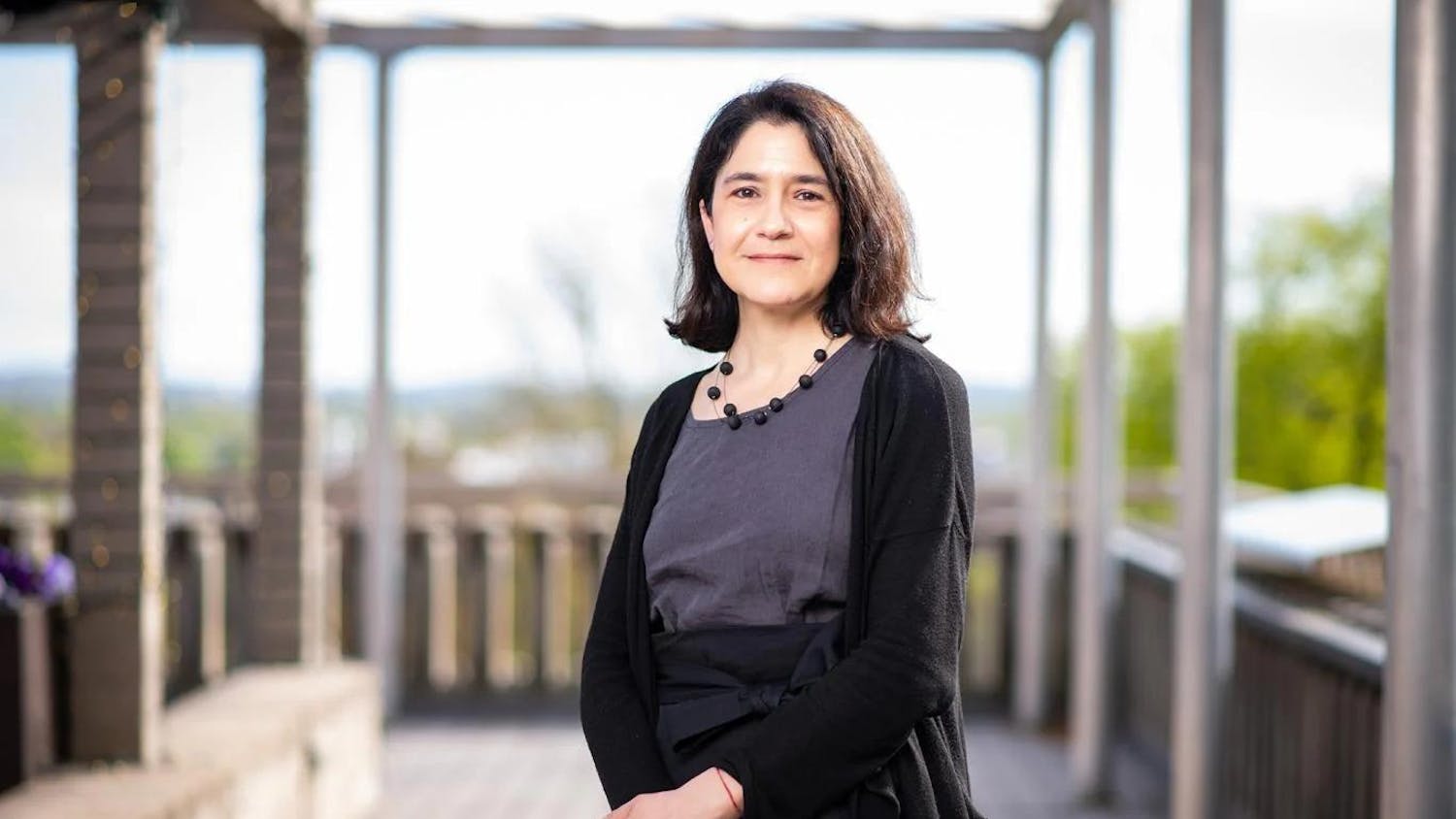The Tufts Federalist Society hosted a panel titled “Intellectual Diversity on Law School Campuses” on March 28. The panel participants included Emily Miller, a third-year J.D. candidate at Harvard Law School; Ben Pontz, a third-year J.D. candidate at Harvard Law School and president of the Harvard Federalist Society; and Kristi Jobson, assistant dean for admissions and chief admissions officer for Harvard Law School. Dayna Cunningham, dean of the Jonathan M. Tisch College of Civic Life, moderated the panel.
Cunningham opened the panel by explaining her thoughts on the topic and her goals for moderating an intellectually invigorating and civil discussion.
“I would hope, I think especially now in the climate that we are in, these ideas about intellectual rigor, curiosity and humanism are so important as self-policing mechanisms,” she said. “Because at the end of the day, [for] any community, any democracy, all we have is the strength of our citizens, one by one.”
Cunningham then posed her first question: “Is it just a misconception that people feel that campuses are less intellectually diverse today? Or is there real data to back it up?”
“If there’s real data, I’m not sure that it comes out in these discussions,” Jobson said. “Oftentimes, there’s reactions to big events that might happen, or a social media moment or feelings and vibes that are happening on campus, but I have personally not necessarily seen rigorous data on who’s attending college, what their political views are and how those views change over time.”
“I’m also not aware of data. I’m also not really sure what you would put on the Y-axis of that graph,” Pontz added.
As the discussion continued, the speakers reached a consensus that law school campuses are uniquely geared toward open and academic discussions about politics.
“[At Harvard Law School], there’s a lot more opportunities for richness in conversations with people with whom you don’t agree,” Miller said.
Cunningham proceeded to ask the panelists about the value they saw in intellectual diversity.
“It makes my arguments so much stronger when I have someone who can be a sounding board and then dismantle my entire argument and make it better the next time around,” Miller said.
Pontz further emphasized the importance of learning to understand different points of view as a law school student.
“The American legal system is set up to be an adversarial system, particularly in litigation contexts,” Pontz explained. “In the law school classroom … people are often pushed to articulate and defend positions that they don’t necessarily agree with personally. And I think that that exercise has certainly been beneficial to me. … If everyone thinks the same about the issue, you’re gonna miss things.”
When asked if intellectual diversity should be valued over other kinds of diversity, Jobson and Miller agreed that they did not view those as mutually exclusive. Pontz did not disagree with them, but he elaborated that he sees other types of diversity as useful because they enable intellectual diversity.
Cunningham then challenged the panelists to think about the limits of tolerance in terms of differing opinions on the campus.
“Where do you draw the line at opinions that deserve a place on Harvard’s campus versus ones that don’t?” she asked.
“I think people say odious things all the time. They can have the space to say it, but you also have the space to counter against it,” Miller said. “Let’s say you want to censor [an opinion], you don’t want anyone to be allowed to say it. The next day, that exact same toolkit is going to be used against the views that you care about the most.”
Pontz pointed out that he sees value in people being able to express their most controversial ideas.
“I think most people should be able to say most things most of the time,” he said. “And then I think I should also be allowed to say, ‘if that’s what that person thinks, I don’t know how much I want to invest in building a relationship with that person.’”
Cunningham then raised the question, “How should institutions think about handling the heckler’s veto?”
The panel was again in agreement, arguing that while protest is often useful and admirable, it is best when it does not disrupt the speech of others. Jobson added that there are “ways to protest in the room and not block a speaker.”
The panel then took questions from audience members for the Q&A portion of the event.
One audience member asked about the degree to which Harvard professors were working to foster inclusive environments that promote free speech.
“Thirty-seven different Harvard Law School professors have participated in Harvard Federalist Society events this year,” Pontz responded. “The Harvard Law School faculty, to a person, is eager to participate in what I think would be best described as a truth-seeking endeavor that involves hearing out ideas of all types.”
Another audience member asked about whether or not there are major challenges threatening intellectual diversity and free speech on Harvard’s campus.
“What concerns me most in the free speech space at Harvard Law School is actually lack of speech and potential chilling effects that students might feel — in the classroom, outside the classroom — on whether it’s worth it to speak at all,” Jobson said. “That’s kind of what keeps me up at night in terms of free speech.”






